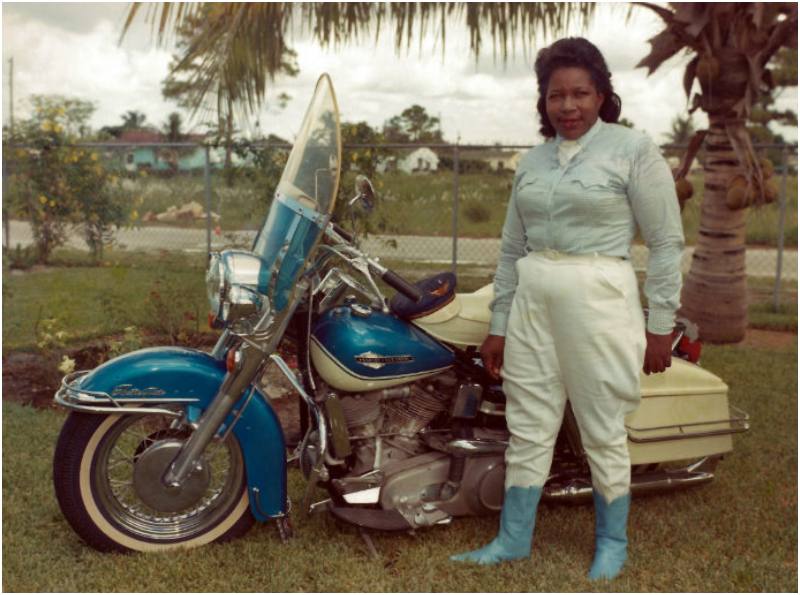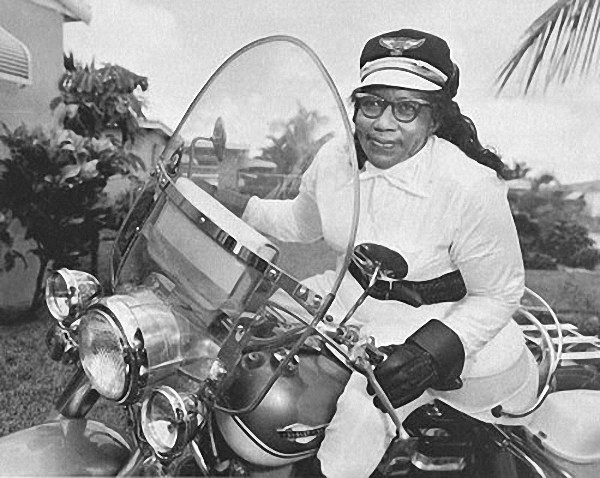In the early 20th century, when women—especially Black women—were rarely seen behind the wheel, Bessie Stringfield’s motorcycle became her weapon of defiance and freedom.
Known as the “Motorcycle Queen of Miami,” she made history by becoming the first Black woman to ride solo across all 48 lower U.S. states and served as a daring dispatch rider for the U.S. Army during World War II, inspiring generations with her grit and resilience.
Bessie’s journey as a motorcyclist was anything but conventional.
To make ends meet while she rode across the country, she performed at carnivals and in stunt shows, tackling death-defying acts like the Wall of Death, where riders looped around a vertical wall at high speeds.

Her audacious spirit led her into flat track races, often disguised as a man to avoid being denied entry. But when race organizers discovered her gender, they frequently refused to pay her winnings—a practice that only fueled Bessie’s rebellious passion for riding.
As a Black woman blazing trails on two wheels, Stringfield faced relentless discrimination. Hotels often refused her a room, forcing her to sleep on her bike under the stars, and diners denied her food. But her courage only grew.
When World War II erupted, Bessie took her motorcycle prowess to the next level by becoming a dispatch rider for the U.S. Army.

Though she served in a civilian capacity, she embodied the bravery and dedication of any soldier, braving treacherous roads and harsh weather to deliver military messages.
Beyond her prowess on the road, Bessie’s personal life was just as adventurous. Of her six husbands, all but one were over 20 years younger than her.
Even at 70, she declared she wouldn’t consider a man over 35, saying with confidence that she was just as bold in love as she was on the open road.
Bessie Stringfield’s impact reaches far beyond motorcycling. She’s remembered not only as a pioneering woman who shattered gender and racial barriers but as a fearless, fun-loving spirit who championed her own freedom with pride.
She earned a place in the American Motorcyclist Association’s Hall of Fame in 2002, solidifying her legacy as a pioneering force who took on an industry and a world that tried to limit her.
Bessie’s story serves as an enduring testament to the power of living unapologetically, a true heroine for Black women and adventurers everywhere.
Through her resilience, Bessie Stringfield became more than a motorcyclist—she became a symbol of boundless courage, inspiring anyone willing to ride forward in pursuit of their dreams.
